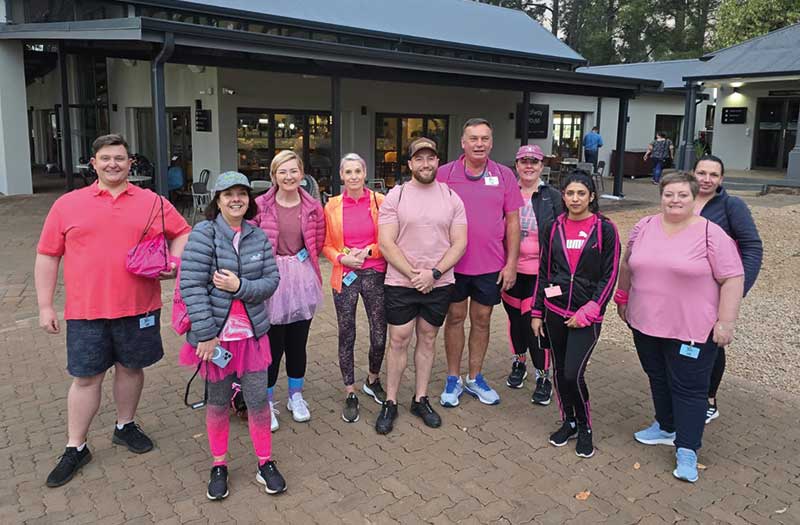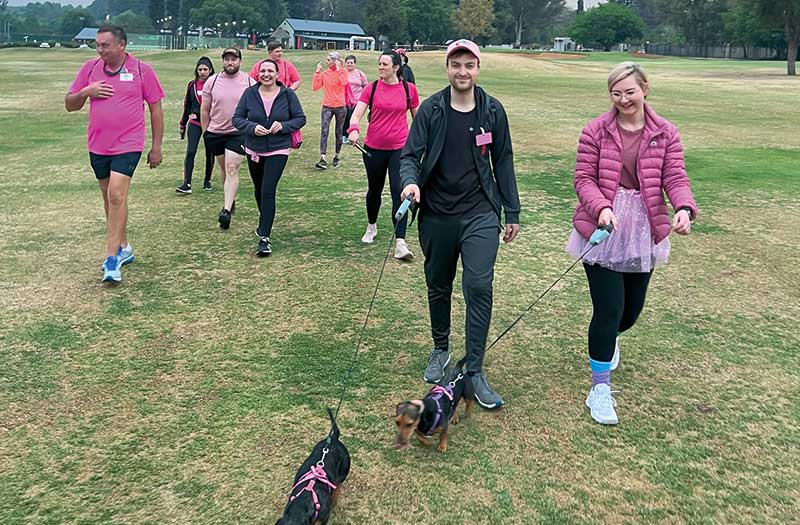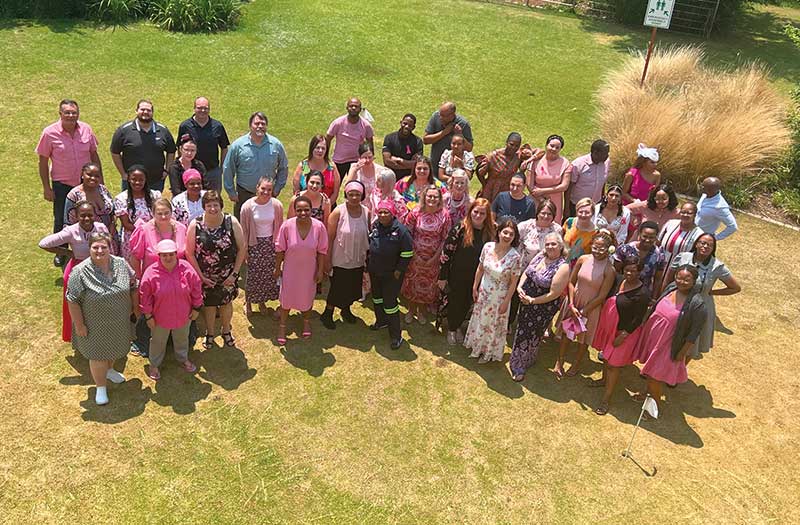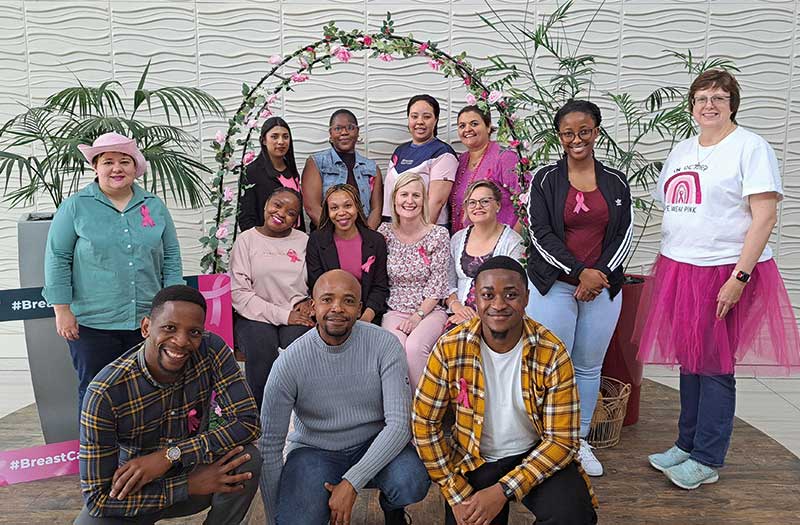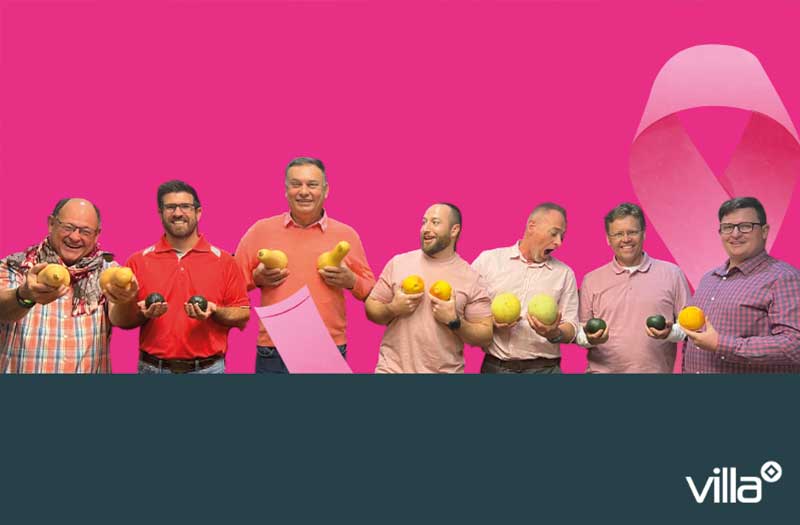Pink and blue campaigns show you’re never alone
Cancer awareness campaigns have been around for many years – October’s pink ribbons for breast cancer awareness perhaps more so than blue ribbons or awkward moustaches for prostate cancer awareness every November.
And no-one can afford to ignore the message that comes with these campaigns. In South Africa, the lifetime risk of being diagnosed with breast cancer is 1 in 26, according to the National Cancer Registry, and for prostate cancer it is even higher, at 1 in 15. Colorectal cancer is among the top three cancers diagnosed in South Africa – the second-most prevalent in men following prostate cancer and the third-most prevalent in women following breast and cervical cancer.
Discovery Health, South Africa’s biggest medical aid, noted on World Cancer Day (4 February) that cancer screenings have not yet recovered to pre-Covid levels, and emphasised that early detection vastly improves a patient’s chances of a full recovery.
For the two women driving these awareness campaigns at Villa, HR manager Malanie Brits and Brand and Communications Manager Carina Olivier, the emphasis has been on getting people involved and getting them talking, in order to show that no-one undergoing cancer treatment needs to hide their diagnosis or struggle alone and in silence.
The breast cancer awareness campaigns have been growing naturally since WinField United South Africa (WUSA) CEO Jan Vermaak’s wife Nicolette shared her personal experiences fighting breast cancer in 2023, greatly raising awareness and participation among female staffers. This year, the respected University of Pretoria plant pathology researcher and course developer, Dr Willeke de Bruin, shared her breast cancer journey with Villa employees during a ladies tea, and Villa named its first Pink Ambassador, Accountant Elmari van der Walt.
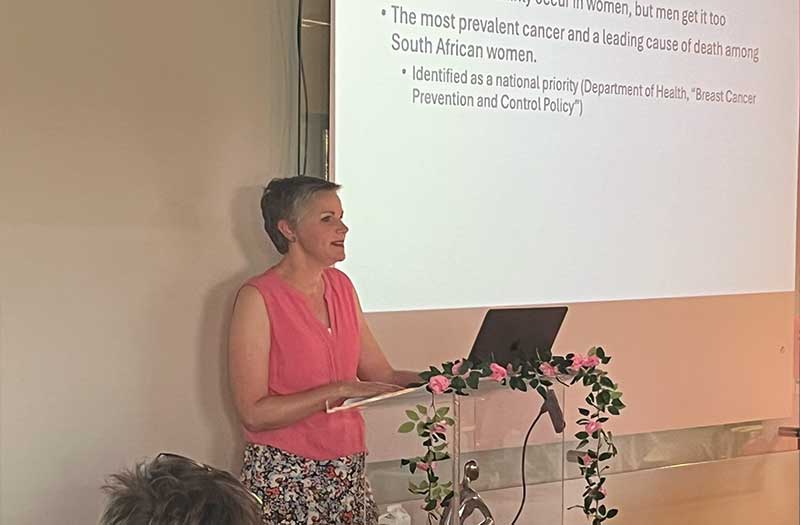
“The pink campaign has always drawn more attention; women have generally been more open to participate in activities because there is a higher awareness of breast cancer, and women are more inclined to talk about it,” says Malanie.
Convincing male colleagues to take part in such campaigns has been more difficult; men are generally more reluctant to speak up about cancer or health matters in general.
“That is why we roped in senior male managers to get involved in the pink campaign by getting them to dress in pink and posing for campaign photos. We wanted to show everyone that management supports openness around the subject. We hoped it would be an icebreaker, and it certainly got them talking!”
November’s blue month activities have therefore expanded to include a similar tribute to two male colleagues currently on their own cancer journey.
“Hearing the firsthand experiences of someone who went through a battle with cancer is infinitely more powerful than any awareness e-mail or information poster, and that is why I expect that our pink and blue campaigns will continue to gain traction as time goes on,” says Malanie.
“The fact that our own colleagues are involved makes it so much more personal. We’ve always had the Mo-Bro competition, but this year we challenge our male colleagues to grow a moustache to show support for our own colleagues. Participating in these events show that we at Villa support our colleagues.”
Carina adds that speaking with breast cancer survivors reveals that companies often do very little to support their employees during cancer treatment.
“We easily spend a third of our time at work. We sometimes see more of our colleagues than we see our own family. You absolutely need the support of your workplace to get through something like this, and that is our aim with these campaigns – to show that at Villa you don’t have to fight cancer alone and under cover.”
* All WUSA employees have the option to obtain voluntary dread disease cover through a group scheme at a reasonable monthly cost.
